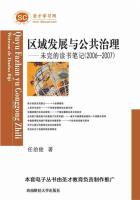I might have overcome those obstacles, with little trouble, among a people so essentially good-tempered and courteous as the Italians, if I had tried. But it occurred to me that my first duty was to my own countrymen. The misery crying for relief in London, is misery not paralleled in any city of Italy. When you met me, I was on my way to London, to place my services at the disposal of any clergyman, in a poor neighborhood, who would accept such help as I can offer him." He paused a little--hesitated--and added in lower tones:--"That was one of my objects in returning to England. It is only honest to own to you that I had another motive besides."
"A motive connected with your brother and with Lucilla?" I suggested.
"Yes. Don't misinterpret me! I am not returning to England to retract what I said to Nugent. I still leave him free to plead his own cause with Lucilla in his own person. I am still resolved not to distress myself and distress them, by returning to Dimchurch. But I have a longing that nothing can subdue, to know how it has ended between them. Don't ask me to say more than that! In spite of the time that has passed, it breaks my heart to talk of Lucilla. I had looked forward to a meeting with you in London, and to hearing what I longed to hear, from your lips. Judge for yourself what my hopes were when I first saw your face; and forgive me if I felt my disappointment bitterly, when I found that you had really no news to tell, and when you spoke of Nugent as you did." He stopped, and pressed my arm earnestly. "Suppose I am right about Miss Finch's letter?' he added. "Suppose it should really be waiting for you at the post?"
"Well?"
"The letter may contain the news which I most want to hear."
I checked him there. "I am not sure of that," I answered. "I don't know what it is that you most want to hear."
I said those words with a purpose. What was the news he was longing for?
In spite of all that he had told me, my instincts answered: News that Lucilla is still a single woman. My object in speaking as I had just spoken, was to tempt him into a reply which might confirm me in this opinion. He evaded the reply. Was that confirmation in itself? Yes--as _I_ think!
"Will you tell me what there is in the letter?" he asked--passing, as you see, entirely over what I had just said to him.
"Yes--if you wish it," I answered: not over well pleased with his want of confidence in me.
"No matter what the letter contains?" he went on, evidently doubting me.
I said Yes, again--that one word, and no more.
"I suppose it would be asking too much," he persisted, "to ask you to let me read the letter myself?"
My temper, as you are well aware by this time, is not the temper of a saint. I drew my arm smartly out of his arm; and I surveyed him with, what poor Pratolungo used to call, "my Roman look."
"Mr. Oscar Dubourg! say, in plain words, that you distrust me."
He protested of course that he did nothing of the kind--without producing the slightest effect on me. Just run over in your mind the insults, worries, and anxieties which had assailed me, as the reward for my friendly interest in this man's welfare. Or, if that is too great an effort, be so good as to remember that Lucilla's farewell letter to me at Dimchurch, was now followed by the equally ungracious expression of Oscar's distrust--and this at a time when I had had serious trials of my own to sustain at my father's bedside. I think you will admit that a sweeter temper than mine might have not unnaturally turned a little sour under present circumstances.
I answered not a word to Oscar's protestations--I only searched vehemently in the pocket of my dress.
"Here," I said, opening my card-case, "is my address in this place; and here," I went on, producing the document, "is my passport, if they want it."
I forced the card and the passport into his hands. He took them in helpless astonishment.
"What am I to do with these?" he asked.
"Take them to the Poste-Restante. If there is a letter for me with the Dimchurch post-mark, I authorize you to open it. Read it before it comes into my hands--and then perhaps you will be satisfied?"
He declared that he would do nothing of the sort--and tried to force my documents back into my own possession.
"Please yourself," I said. "I have done with you and your affairs. Mrs.
Finch's letter is of no earthly consequence to me. If it _is_ at the Poste-Restante, I shall not trouble myself to ask for it. What concern have I with news about Lucilla? What does it matter to _me_ whether she is married or not? I am going back to my father and my sisters. Decide for yourself whether you want Mrs. Finch's letter or not."
That settled it. He went his way with my documents to the post-office; and I went mine back to the lodging.














